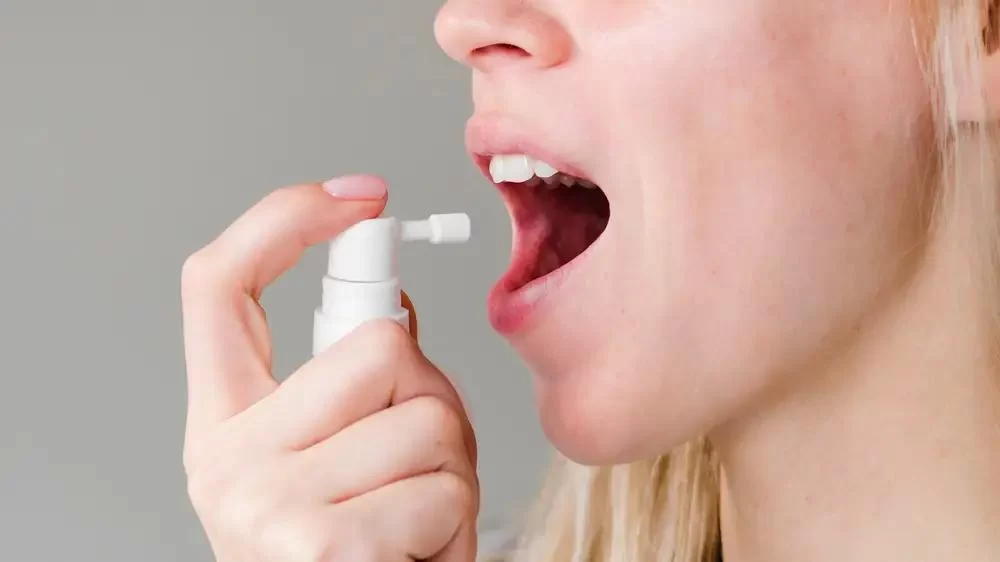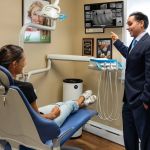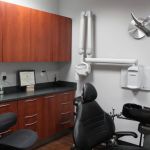
- Understanding Dry Mouth Caused by Medication
- Why Medications Cause Dry Mouth and Its Impact
- Practical Strategies to Treat Medication-Induced Dry Mouth
- Lifestyle Tips to Manage Dry Mouth
- When to See a Professional for Dry Mouth Treatment
- Real-Life Experience Managing Dry Mouth from Medications
Understanding Dry Mouth Caused by Medication
Dry mouth, medically known as xerostomia, is a common side effect of many medications. When you take certain drugs, especially those that affect the nervous system or fluid balance, your salivary glands may produce less saliva than usual. This reduction leads to that uncomfortable dry sensation in your mouth, which can interfere with speaking, swallowing, and even tasting food.
Many people underestimate how disruptive dry mouth caused by medication can be. Beyond simple discomfort, chronic dry mouth can increase the risk of oral infections, tooth decay, and gum disease because saliva plays a critical role in protecting your teeth and maintaining oral health.
Common Medications That Trigger Dry Mouth
Understanding which medications are more likely to cause dry mouth is crucial for managing symptoms effectively. Some of the most common culprits include antihistamines, antidepressants, blood pressure medications, and certain pain relievers. For example, a patient taking amitriptyline, a widely prescribed antidepressant, may experience persistent dryness that worsens throughout the day.
Why Medications Cause Dry Mouth and Its Impact
Medications can alter the function of salivary glands by interfering with the signals that stimulate saliva production. Some drugs block neurotransmitters or receptors that are responsible for activating saliva secretion, leading to a dry oral environment.
This effect not only causes discomfort but can also lead to serious oral health issues. Reduced saliva means less natural cleansing of the mouth, creating an ideal environment for bacteria to thrive. As a result, users may experience bad breath, increased cavities, and even difficulties in wearing dentures comfortably.
The Broader Consequences of Untreated Dry Mouth
Ignoring dry mouth caused by medication can snowball into chronic dental problems. For instance, saliva contains enzymes and minerals that help repair tooth enamel. Without enough saliva, enamel erosion accelerates, making teeth more vulnerable. Also, dry mouth can affect nutrition since eating becomes painful or difficult, further impacting overall health.
Practical Strategies to Treat Medication-Induced Dry Mouth
Treating dry mouth caused by medication involves a multi-faceted approach. While it may not always be possible to stop the medication, there are several ways to alleviate the symptoms effectively.
1. Saliva Substitutes and Stimulants
Using over-the-counter saliva substitutes can provide immediate relief by lubricating the mouth. Products such as mouth sprays, gels, and rinses mimic natural saliva and help maintain moisture. In some cases, doctors may prescribe medications that stimulate saliva production, like pilocarpine or cevimeline, especially if dry mouth severely affects quality of life.
2. Maintaining Hydration
Drinking water regularly throughout the day is a simple yet powerful method to combat dryness. Sipping water helps keep your mouth moist and flushes out food particles that might otherwise irritate dry tissues.
3. Avoiding Irritants
Substances like caffeine, alcohol, and tobacco can worsen dry mouth symptoms by further dehydrating your body and mouth. Steering clear of these can reduce discomfort and protect oral tissues.
4. Specialized Oral Care
Using fluoride toothpaste and mouthwashes designed for dry mouth can strengthen teeth and reduce the risk of cavities. Regular dental check-ups become even more important to catch any early signs of decay or gum disease.
Lifestyle Tips to Manage Dry Mouth
Besides medical treatments, adapting daily habits plays a vital role in managing dry mouth caused by medication.
Mindful Eating Habits
Choosing softer, moist foods and avoiding spicy or salty items can reduce irritation. Chewing sugar-free gum or sucking on sugar-free candies stimulates saliva production naturally, offering symptom relief during meals or social interactions.
Nighttime Care
Dry mouth often worsens at night, which can disrupt sleep and cause morning discomfort. Using a humidifier in your bedroom and avoiding mouth breathing can help maintain moisture while you rest.
When to See a Professional for Dry Mouth Treatment
If dry mouth symptoms persist despite home care, consulting a healthcare professional is essential. Dentists and doctors can evaluate the severity and underlying causes, potentially adjusting medications or recommending specialized treatments.
At Dentistry Toothtruth, experienced professionals provide personalized assessments and recommend tailored solutions to treat dry mouth caused by medication. Their expert guidance ensures not only symptom relief but also long-term oral health preservation.
Diagnostic Steps
Professionals may conduct saliva flow tests or oral examinations to understand the extent of dryness and damage. Based on results, they suggest a comprehensive plan involving lifestyle changes, medication review, and dental care adjustments.
Real-Life Experience Managing Dry Mouth from Medications
Consider the story of Jane, a 55-year-old patient who began experiencing severe dry mouth after starting blood pressure medication. Initially, she dismissed the symptoms until eating and speaking became uncomfortable. After consulting her dentist, Jane learned to use saliva substitutes and adopted better hydration habits. Her dentist also suggested sugar-free chewing gum and specialized toothpaste, significantly improving her quality of life.
This example highlights how tailored strategies and professional advice can transform the experience of those struggling with medication-induced dry mouth. Sharing such stories can empower others facing similar challenges to seek help and explore effective solutions.
For those looking for the most suitable products and services to manage dry mouth caused by medication, Dentistry Toothtruth offers a trusted selection of recommended items and expert support, ensuring you receive care tailored to your needs.







 AV Dental Associates of Ramsey LLC5.0 (57 review)
AV Dental Associates of Ramsey LLC5.0 (57 review) Skyway Dental of St Paul4.0 (97 review)
Skyway Dental of St Paul4.0 (97 review) Longwood Dental Group4.0 (544 review)
Longwood Dental Group4.0 (544 review) Arpino Orthodontics5.0 (133 review)
Arpino Orthodontics5.0 (133 review) David J Wiseman, DDS4.0 (11 review)
David J Wiseman, DDS4.0 (11 review) Collegeville Dental Center4.0 (15 review)
Collegeville Dental Center4.0 (15 review) The Importance of Oral Health Education During Pregnancy for a Healthy Pregnancy
The Importance of Oral Health Education During Pregnancy for a Healthy Pregnancy Best Tips for Brushing Your Teeth Properly for Healthy Gums: Essential Techniques for Oral Health
Best Tips for Brushing Your Teeth Properly for Healthy Gums: Essential Techniques for Oral Health Why Skipping Dental Checkups Can Lead to Bigger Oral Health Problems
Why Skipping Dental Checkups Can Lead to Bigger Oral Health Problems Advantages of Porcelain Dental Restorations
Advantages of Porcelain Dental Restorations How Can Diabetes Cause Tooth and Gum Problems? Preventing and Managing Oral Health Issues
How Can Diabetes Cause Tooth and Gum Problems? Preventing and Managing Oral Health Issues Healthy Habits for Promoting Good Oral Health and Hygiene: Tips for a Healthy Smile
Healthy Habits for Promoting Good Oral Health and Hygiene: Tips for a Healthy Smile